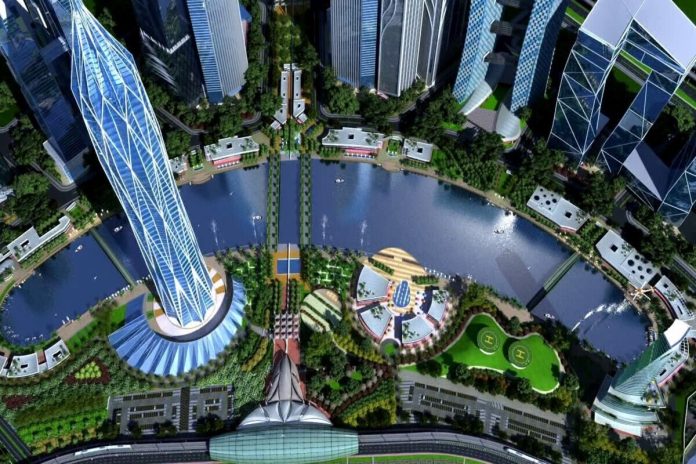In a significant move, the Gujarat government has unveiled a draft plan for the expansive development of GIFT City in Gujarat, with a staggering capital expenditure estimated at Rs 6,200 crore.
GIFT (Gujarat International Finance Tech-City) City, a flagship project of Prime Minister Narendra Modi and inaugurated during his tenure as Chief Minister of Gujarat, is gearing up for its next phase of expansion.
The proposed expansion, to be executed in three phases over the next 15 years, will witness the city’s limits triple to 3,430 acres. This ambitious project, which has opened up to public consultation for 60 days, aims to transform GIFT City into a thriving hub of economic activity.
The first phase of the expansion, set to cost Rs 826 crore, will be followed by Phase 2 and Phase 3 with estimated expenditures of Rs 2,765 crore and Rs 2,596 crore, respectively.
The substantial funds allocated for this development will be directed towards enhancing streets, water supply, sewerage, stormwater drainage, solid waste management, landscape, lake development, and water channel development.
To expedite the implementation of this development plan, the Gujarat government has proposed the public-private partnership (PPP) model.
This collaborative approach will facilitate the swift execution of crucial infrastructure projects such as roads, public transit systems, water supply, solid waste management, waterfront development, and affordable housing.
However, the draft development plan reveals a notable exclusion of certain existing “smart” infrastructure elements from the expanded area. Innovations like the district cooling system (DCS) and underground utility tunnels, which contribute to the distinct urban topography of GIFT City, are not expected to extend to the new zones covering 2,441 acres.
GIFT City boasts India’s pioneering District Cooling System, which eliminates the need for separate air-conditioning units in offices and residential spaces. The draft plan justifies the exclusion of DCS in the expanded area, stating that the proposed streets will incorporate large tree cover and green spaces, resulting in a naturally cooler environment.
Similarly, the utility tunnels, which currently make GIFT City “dig-free” by housing water pipelines, automated solid waste collection pipes, power cables, fibre optic cables, and chilled water pipelines, will not extend into the expanded areas. The draft plan cites reasons such as “ownership of land, capital, and operational expenses” for this exclusion.
A state government official stated that the draft plan is open for public consultation, and if there is a demand for similar infrastructure in the expanded area, it could be considered in the final development plan, subject to cost considerations, reports The Hindu.
While certain advanced waste management systems, like the automatic waste collection and segregation system, may not find a place in the expanded area, other critical infrastructure facilities such as electric supply, round-the-clock availability of Narmada water, water treatment infrastructure, and stormwater networks are expected to mirror those existing in GIFT City. The final decision rests with the government, taking into account public input during the consultation period.


